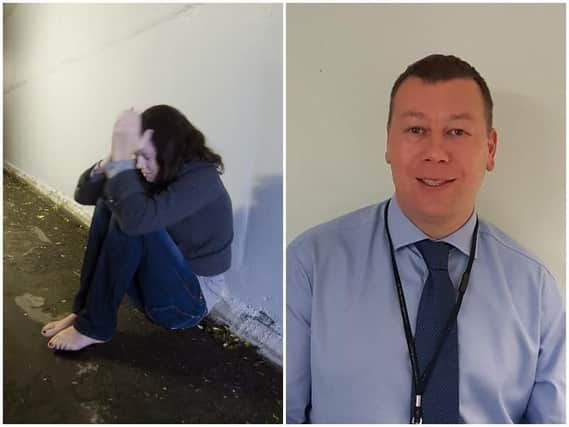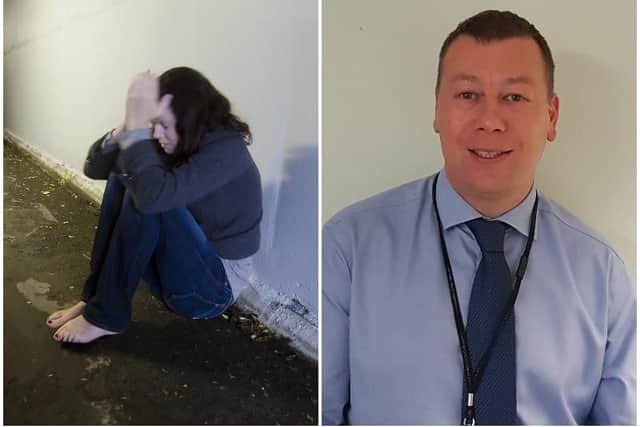Fewer than 1 in 4 rape trials lead to conviction in Lancashire


Fewer than one in four rape cases brought to court by Lancashire Police results in a conviction, figures show.
Data released by the Ministry of Justice (MoJ) reveals that in 2017 only 23 per cent ofprosecutions for rape were successful in Lancashire.
Advertisement
Hide AdAdvertisement
Hide AdThe conviction rate, based on 156 court cases, of which 36 resulted in convictions, is lower than for other sexual crimes, and is also worse than other serious crimes such as grievous bodily harm.


Yet these figures are among some of the better rates in the country – in neighbouring Cumbria only nine per cent of cases brought to court were successful.
Supt Ian Whitehead, of Lancashire Constabulary’s Public Protection Unit, said: “Our conviction rates for rape and sexual assault are above the national average, however we will continually strive to improve outcomes for all victims.
“We want victims to feel confident that they will be treated with compassion and that we will do everything possible to trace those responsible and take action against them.
Advertisement
Hide AdAdvertisement
Hide Ad“Most of the reports of rape that we receive are committed by someone that the victim knows in some way – incidents of stranger rape are very rare.
“Investigations of rape usually identify the offender as being a family member, a friend, someone who has groomed them before committing the attack or someone they have met on a night out. All of these factors can often make it hard for a victim to want to report the crime.
“Throughout our involvement in a report of rape, and its subsequent investigation, we offer a victim-centred approach. Rape is a traumatic crime and the victim is at the heart of everything that we do.
“The constabulary has introduced a number of measures over the past few years to ensure that victims are treated professionally, with sensitivity and with regard for their future safety and well-being.”
Advertisement
Hide AdAdvertisement
Hide AdAcross England and Wales even less rapists are brought to justice. Overall one-in-five rape cases are successfully prosecuted, according to the MoJ.
The number of rapes and attempted rapes reported to the police has generally been on the increase in recent years, a positive sign that victims feel more confident in coming forward, particularly in the wake of the Jimmy Saville abuse scandal and the awareness this raised.
However, while it appears more victims are willing to come forward, the burden of proof is always on the prosecution to prove such allegations to a jury beyond all reasonable doubt and this can be tricky for jurors in Lancashire’s courtrooms when so many cases hinge on the issue of consent or the suspect’s reasonable belief in consent.
Alleged offences usually take place in private, where the complainant is the only witness.
Advertisement
Hide AdAdvertisement
Hide AdIn some cases the rape is historic in nature so forensic evidence is almost impossible to come by.
Victim charities have voiced concerns the low figures could potentially deter victims from beginning the process to seek justice.
Claire Powell, contract manger for Lancashire at independent charity Victim Support, said: “It is positive to see the number of rape cases being brought to court increasing and we know that there is ongoing work to improve this, but one in four is still too low.
“The majority of rape victims do not report the crime in the first place and the fear of not being believed and not getting the justice they deserve is one of the main reasons for that.
Advertisement
Hide AdAdvertisement
Hide Ad“Unfortunately news like this has the potential to undermine public confidence in the criminal justice system and more must be done to drive up prosecution rates.”
Dr Hannah Bows, senior lecturer in criminology at Teeside University, is also concerned these figures will put people off from reporting rape allegations.
She says: “It’s a pretty horrible and pretty lengthy process anyway. Often the victim feels like they’re on trial. If someone said to you do you want to have your whole life exposed for around a one in four chance of success you’d probably say no.”
She said that while it was hard to judge without knowing the details of cases, the figures were “particularly surprising”. It shows something is going wrong either with charging decisions being made by the Crown Prosecution Service or what’s happening in court. Something is going wrong because the evidence required in rape cases to get a case brought to court is so high. Any question marks and the case is unlikely to go forward.
Advertisement
Hide AdAdvertisement
Hide Ad“That’s why it’s so frustrating when people say there are loads of false rape cases because it’s not true.”
The figures come at a time the process of rape trials is under scrutiny after several case collapsed at the turn of the year over problems with disclosure of evidence.
The trial of Liam Allan was stopped at Croydon Crown Court, after an officer had failed to find key evidence, including 57,000 messages between the alleged victim and Mr Allan.
Three other trials were halted within the next month, leading the CPS to review all rape cases that were being brought to court.
Advertisement
Hide AdAdvertisement
Hide AdA CPS spokesman said: “We recognise that rape and serious sexual offences are some of the most complex cases prosecuted by the CPS and we have worked hard in recent years to improve how we deal with these cases.
“We have almost doubled the number of specialist prosecutors in our dedicated Rape and Serious Sexual Offence Units and improved the support we offer victims through criminal proceedings.
“In recognition of the unique challenges involved in prosecuting these offences and taking them to trial, the CPS is focused on building strong cases with all available evidence, including CCTV, eyewitness accounts and mobile phone evidence, and supporting victims throughout the process.”
The data shows that prosecutions for Lancashire Police are becoming increasingly successful, albeit slowly.
Advertisement
Hide AdAdvertisement
Hide AdIn 2016, 22 per cent of rape cases brought to court resulted in convictions but the rate is now 23 per cent.
In 2015 into 2016 CPS North West set up a specialist unit for prosecuting rape and serious sexual offences, with specially trained prosecutors and paralegal staff.